ABOUT
We engineer biomaterials with controlled properties for applications in cell engineering, to support in vitro models and as tools for mechanobiology.
Our research focuses on the design of advanced biomaterials to engineer the cellular microenvironment, and has the potential to impact health by translating fundamental research into innovative therapies.
We have pioneered the design of materials that trigger the organisation of extracellular matrix proteins in a physiological way, a phenomenon that named material-driven protein fibrillogenesis (Science Advances 2016). We have also introduced new concepts in the field, such as the use viscosity to control cell behaviour (PNAS 2018); living biomaterials (bacteria-based materials) for stem cell engineering (Advanced Materials 2018); the low dose use of BMP-2 for bone regeneration (Advanced Science 2019), the relationship between matrix rigidity and metabolism (Nature Metabolism 2020) and interfaces that trigger the mechanical activation of growth factors (Advanced Materials 2024).
Our group develops radical new concepts that are pushed all the way through the translational ladder to tackle unmet clinical problems related to the health of people.
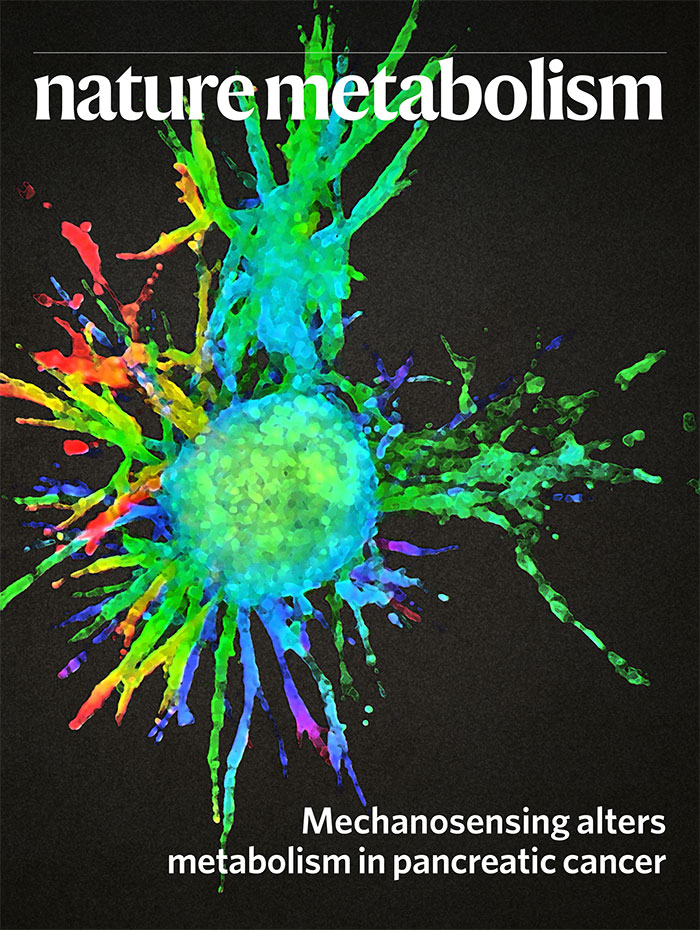
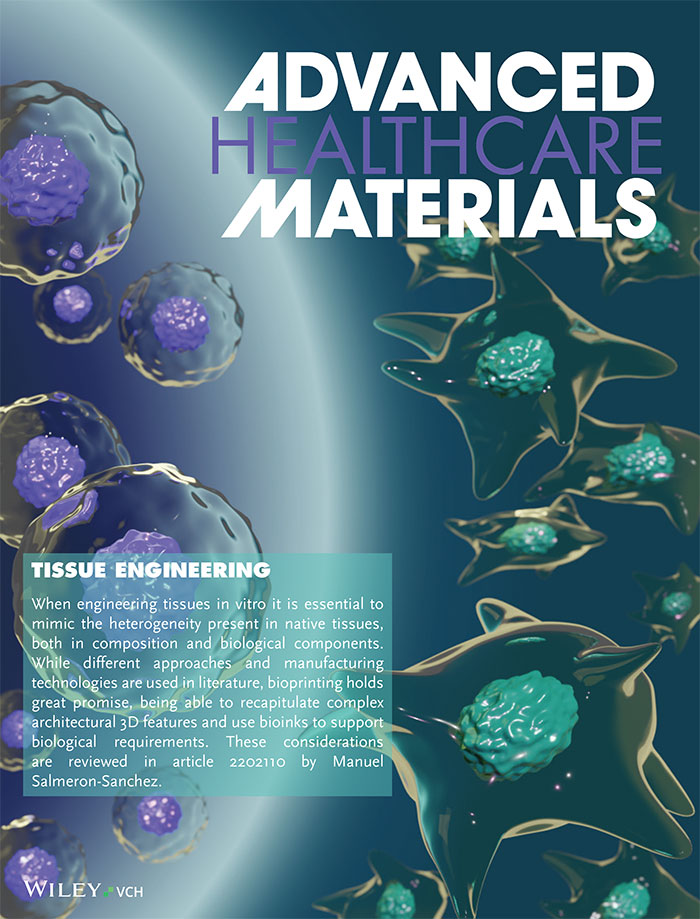
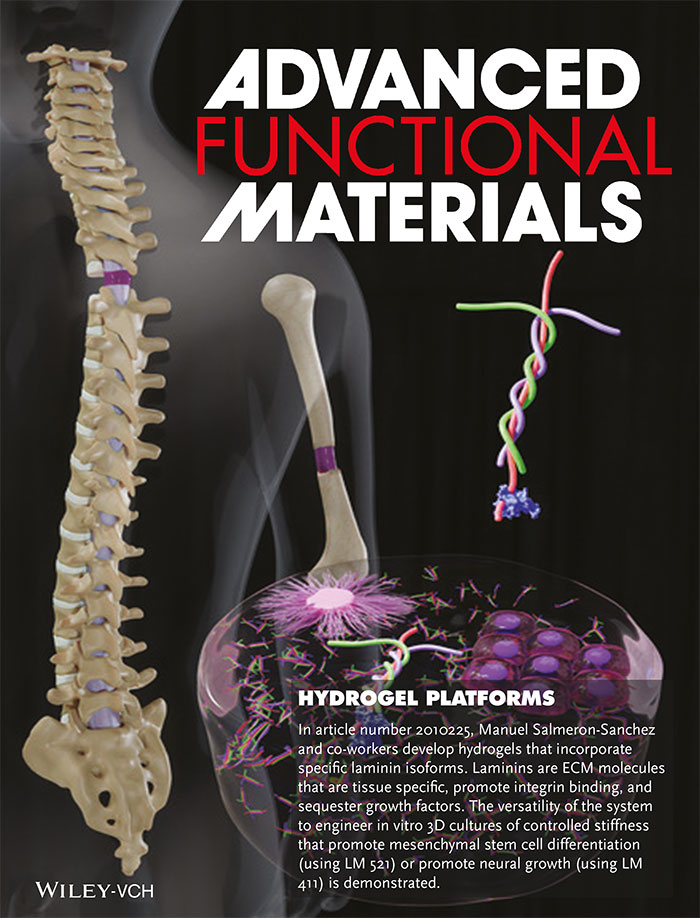
1. Engineered viscoelasticity in regenerative medicine and mechanobiology
We know that the extracellular matrix is viscoelastic yet most biomaterials that support tissue engineering and regenerative medicine approaches only consider the elasticity of biomaterials. We strive at design of materials where elasticity and viscosity can be tuned independently to provide 2D and 3D hydrogels that support dynamic cellular process and their physical remodelling.
2. in vitro models in health and disease
Improved in vitro models enable the study of human tissues in health and disease (e.g. cancer, degenerative diseases, inflammatory diseases), the assessment of new drug delivery tools (e.g. functional biomaterials, encapsulation delivery technologies, new microfluidic devices, etc.), and the cheaper and safer toxicity screening of new drug candidates. We develop robust extracellular matrix mimics, that provide the essential characteristics of a natural ECM in its ability to direct and control cell behaviour, yet with minimal complexity.
3. Engineered living biomaterials to control stem cell fate
Materials-based approaches to direct stem cell fate have resulted in major findings in relation to surface chemistry, stiffness and nanotopography. However, these models are a poor representation of in vivo behaviours, where cells interact with the extracellular matrix through a highly dynamic process. We have pioneered genetically engineered non-pathogenic bacteria that underpin living biomaterials that support stem cells. Living biomaterials that are responsive to small molecules and controlled by light will be new tools in the field.
STAFF
Manuel Salmeron Sanchez
 ibecbarcelona.eu
ibecbarcelona.euPROJECTS
PUBLICATIONS
EQUIPMENT
COLLABORATIONS
NEWS/JOBS
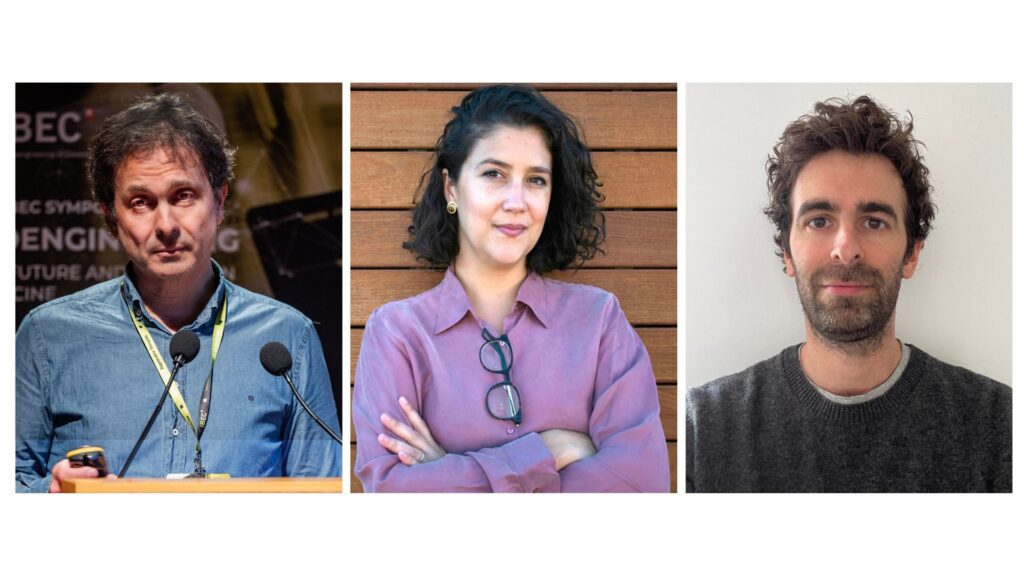
El IBEC se refuerza con tres nuevos grupos de investigación en terapias avanzadas y emergentes
El IBEC estrena el 2024 con la incorporación de tres nuevos grupos de investigación que serán liderados por Manuel Salmerón Sánchez, Zaida Álvarez Pinto y Xavier Rovira Clavé. Con estas incorporaciones, el IBEC fortalece su posicionamiento en el campo de las terapias avanzadas y emergentes.
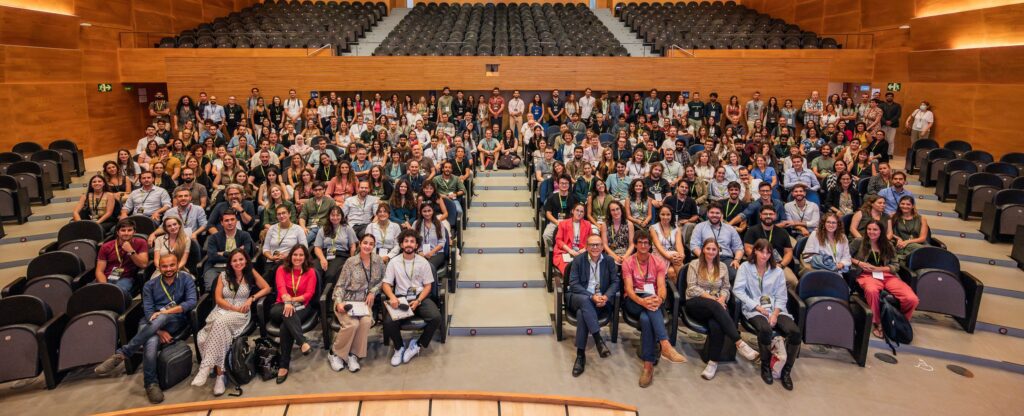
Bioingeniería para la medicina del futuro en el 16º Simposio del IBEC
El 16º Simposio anual del IBEC se centró en ‘Bioingeniería para la Medicina del Futuro y de Precisión’, una de las tres áreas clave de aplicación del IBEC. Fueron cerca de 300 las personas asistentes al evento, entre las que se encontraban investigadores locales e internacionales. Un ambiente multidisciplinar en el que expertos de otros centros y la propia comunidad del IBEC tuvieron la oportunidad de presentar sus proyectos e intercambiar conocimiento.

